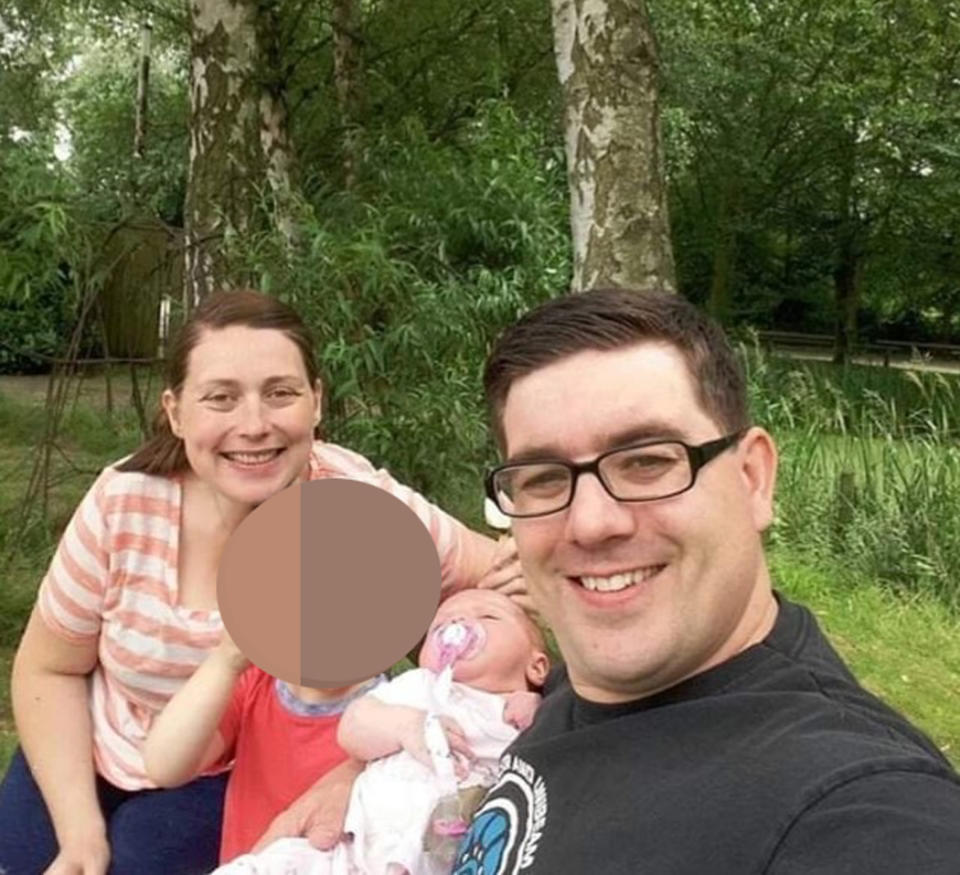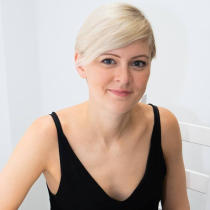Mum became obsessed with kissing baby goodnight after she was told she was infertile

A new mum found herself suffering with obsessive compulsive disorder after giving birth to her baby after being told she was infertile.
Rachael Wanklyn, 37, welcomed her miracle daughter after years of infertility, but the joy surrounding her birth was marred by Wanklyn’s irrational fear that her baby would die.
The obsessive compulsive disorder manifested itself with her obsessive need to kiss her baby before she went to bed each night in case she passed away while she was sleeping.
The special needs teaching assistant and her husband, Daniel, 42, were diagnosed with unexplained infertility in 2010.
Read more: Jessie J shares infertility struggles
The pair went on to adopt a son in 2014 and had just started the process to adopt again when they found out that Wanklyn was pregnant.

She admitted to being “dumbfounded” when she found out she was pregnant and baby Clara arrived safely on 9 May 2016 weighing 7lbs 12oz.
The shock surrounding Clara’s birth left her mum feeling consumed by fear of losing her.
“I convinced myself Clara would die during the night.
“As a result, every night I had to make sure that kissing her head was the last thing I did, so she knew that she was loved.
“If I fiddled with my bed pillows, or went to the toilet, or even if Daniel kissed me goodnight, I’d have to get up and give Clara a kiss again to make sure it was the last thing I did,” Wanklyn explained her symptoms, which are aligned with typical obsessive compulsive behaviours.
Read more: Halsey discusses pain of miscarriage
As well as kissing her baby before bed, she found herself picking up other common compulsive behaviours, like obsessively checking that the doors and windows were locked.
“I was so worried that someone would get into the house and take Clara away that I’d repeatedly check the windows and doors,” she explained.
“We’d get halfway down the road somewhere and I’d think, ‘No, I need to go back and check the front door again’.
“It wasn’t about the number of times I checked it, I just needed to make sure I checked until my hand hurt from pushing down on the doorknob so much. It was weird, but it made sense in my head.”
The symptoms Wanklyn suffered all fitted into the symptoms the NHS note as being typical of people suffering from obsessive compulsive disorder.
Read more: UK birth rate in England and Wales at all time low
Noticing that this new behaviour wasn’t right, Wanklyn decided to seek help when her daughter was three-years-old. It was at this point that she was diagnosed with perinatal obsessive compulsive disorder, where someone has intrusive, unwanted thoughts or obsessions about their infant.
The diagnosis was followed by months of counselling, which, thankfully helped the new mum to be able to kiss her daughter goodnight without a worry that she might pass away.
I still kiss my daughter goodnight – but in my head the kiss no longer means the difference between her living or dying, it’s simply to say night night,” she admits.
Now, she’s determined to share her story in order to encourage new families to open up about how they’re feeling.
She’s an advocate for the PANDAS Foundation, a leading UK charity supporting people suffering with perinatal mental illness and their families.
After experiencing it herself, Wanklyn realised that the “best form of medication is a simple conversation”.
“They were there to help me through the low point and, rather than make me feel like I was talking rubbish, they made me feel understood.”


